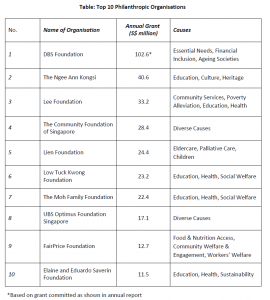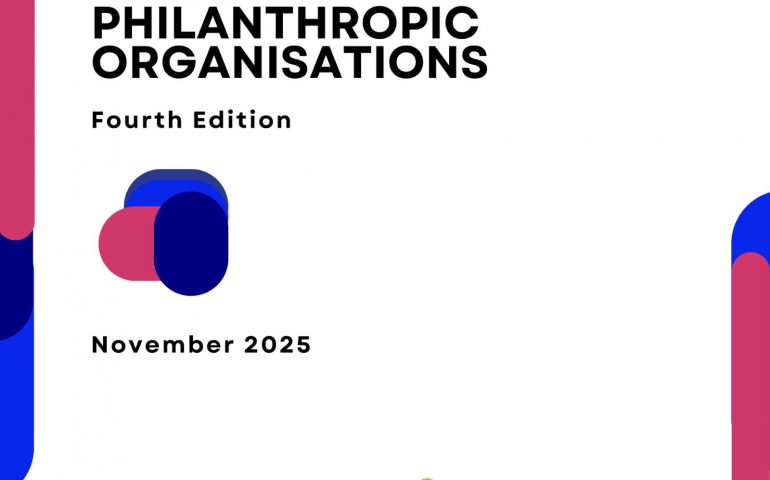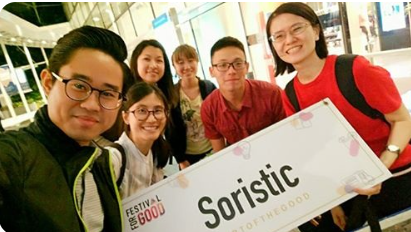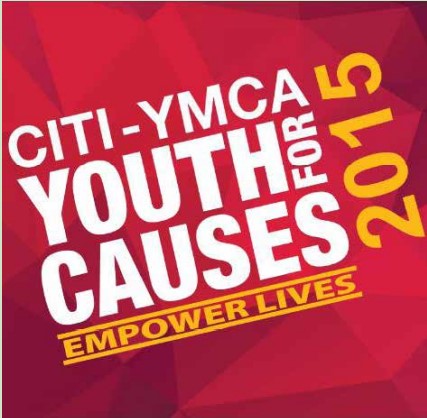Overview
Singapore’s philanthropic landscape has grown in visibility, scale and sophistication over the past decade, shaped by the country’s position as a global wealth hub and a trusted base for international and regional giving. In recent years, however, the ecosystem has expanded significantly, driven by the influx of family offices, increasing interest from wealth holders in purpose-driven contributions, and the emergence of new institutions that support more structured, strategic and collaborative forms of giving. This maturing environment provides the backdrop for this year’s edition of Singapore’s Biggest Philanthropic Organisations, which highlights the breadth of philanthropic activity taking place today.
A key development is the rapid growth of philanthropic intermediaries, especially donor-advised funds (DAFs) and advisory platforms. As highlighted in the case study on donor-advised funds, early providers such as the Community Foundation of Singapore and UBS Optimus Foundation Singapore have long offered structured avenues for giving, while newer entrants like Asia Community Foundation and Temasek Trust Foundation Advisors reflect rising demand for regional as well as local giving. These intermediaries reduce administrative burdens, provide due diligence and governance support, enable cross-border donation flows and help donors participate more strategically.
Complementing them are networks and platforms such as Philanthropy Asia Alliance, ImpactCollab and Co-Axis, which broaden access by convening funders and facilitating collaborative or regional opportunities. Together, these developments point to growing expectations for professional support in how philanthropic capital is deployed. The decision by the Gates Foundation to establish a regional office in Singapore in 2025 further underscores the nation’s strengthening role as a regional philanthropy hub.
Another significant trend is the rise of evidence-based philanthropy, with more organisations investing in research to understand community needs before shaping their programmes or grantmaking. As highlighted in the FairPrice Foundation case study in this report, the corporate foundation commissioned both the Full Plate study (2024) and the Stay Strong study (2025) to understand nutrition gaps across life stages. Insights from these studies directly informed new initiatives, including a targeted senior nutrition programme developed with Tan Tock Seng Hospital. Similar research-driven approaches are increasingly being adopted by philanthropic organisations across the sector, guiding funding priorities and enabling more strategic and effective programme design.
Taken together, these developments highlight a philanthropic environment that is becoming more connected, intentional and professionally supported. From the rise of donor-advised funds and giving platforms to the growing emphasis on training and evidence-based programme design, Singapore’s ecosystem continues to build the infrastructure, expertise and knowledge needed to support meaningful, long-term social impact.
Singapore’s Biggest Philanthropic Organisations List (2025)
The Singapore’s Biggest Philanthropic Organisations List highlights private philanthropic entities registered in Singapore and ranks them according to the annual grants they disbursed in the most recently available Financial Year (i.e., 2024 or 2025). The grant amounts are derived from mainly publicly accessible information and may include both local and international disbursements.
The 2025 edition identifies 126 organisations, up from 117 the previous year, with total giving amounting to $419 million compared to $431 million previously. Nearly 24.5% of all giving came from the single largest philanthropic organisation. The decline in total giving is largely driven by the outsized influence of last year’s top giver, which alone accounted for around 30% of total contributions through what was an exceptional, one-off disbursement. Because such large special contributions can fluctuate significantly from year to year, the reduction in these extraordinary gifts explains much of the dip observed in this year’s overall giving.
Notably, 42 organisations distributed over S$1 million each, and the top 10 accounted for $316 million in total grants. Among the top ten, five are affiliated to individuals/families, two are affiliated to corporates, two are donor-advised fund sponsors and one is affiliated to a clan. The top giver is DBS Foundation, which committed $102.6 million in 2024 to support 16 new multi-year programmes and 22 Businesses for Impact across Asia, focusing on uplifting vulnerable communities by providing essential needs and fostering financial inclusion. In line with DBS Foundation’s 10 anniversary in 2024, DBS committed up to SGD 1 billion over the next 10 years to deepen support for its efforts moving forward. This contributed to the significant rise in its grant commitment in 2024 compared to previous years.
The second biggest giver is The Ngee Ann Kongsi, a Teochew philanthropic organisation that disbursed S$40.6 million in 2024 to educational, cultural and charitable causes. Notably in 2024, it pledged a multi-year gift of S$12.5 million to NTU Singapore to advance Traditional Chinese Medicine (TCM) education and build a local pipeline of TCM professionals who can serve the needs of the population.
The third biggest giver is Lee Foundation, a family foundation, which disbursed S$33.2 million in 2024 to a wide range of charities and causes. It is also, by a very large margin, the biggest foundation in Singapore in terms of its total asset size, holding S$13.6 billion.
The fourth biggest giver is The Community Foundation of Singapore, the pioneer DAF sponsor in Singapore, which disbursed $28.4 million in grants to various local charities.
The fifth biggest giver is Lien Foundation, a family foundation, which disbursed $24.4 million to charities working in areas including palliative care, eldercare and senior’s mental wellbeing.
The next five largest philanthropic organisations each disbursed between S$11.5 million and S$23.2 million. Low Tuck Kwong Foundation, a family foundation and last year’s top giver, disbursed S$23.2 million. The Moh Family Foundation, also a family foundation, disbursed S$22.4 million. UBS Optimus Foundation Singapore, a donor-advised fund for UBS private clients, disbursed S$17.1 million. FairPrice Foundation, a corporate foundation, disbursed S$12.7 million to support its key focus areas, which include community welfare, access to daily essentials and nutrition, and workers’ well-being. The Elaine and Eduardo Saverin Foundation, a family foundation, disbursed S$11.5 million. Previously unranked, it entered the top ten this year as it commenced its philanthropic activities.

Data Collection and Methodology
This is the fourth edition of the report, with earlier versions published in 2024, 2022 and 2021. It examines private philanthropic organisations registered with the Inland Revenue Authority of Singapore (IRAS) and/or the Commissioner of Charities (COC).
Organisations excluded from consideration include those deriving most of their income from public donations, as well as philanthropic organisations that are politically affiliated, faith-based, or government-related. Faith-based and politically affiliated grantmakers are excluded because many do not publicly disclose their grantmaking amounts or activities, and some restrict grants to recipients of the same faith. Similarly, funds and trust entities established for specific charities, such as school funds designated exclusively for their beneficiaries, are not considered. Organisations that have suspended their activities or are in the midst of deregistration are also excluded. To maintain a focus on private philanthropy, government-affiliated grantmakers are not included.
Data was compiled mainly from publicly accessible sources, including annual reports, the Charity Portal, and official organisational websites, between September and November 2025. Figures are standardised to Singapore dollars, and the ranking is based on the most recent annual grant disbursements between Financial Year 2024 to 2025. The majority of the data come from Financial Year 2024. Organisations with data earlier than 2023 as well as those with no publicly available grant data are unranked.
Limitations
This report relies on publicly available data. Some philanthropic organisations in Singapore may not be registered as charities with the Commissioner of Charities (COC) or listed as grantmakers with the Inland Revenue Authority of Singapore (IRAS). These may include family offices that allocate a portion of their resources to grantmaking, or philanthropic funds established by donors and managed by private banks in Singapore. Due to the lack of publicly available information, such entities are not included in the list.
Grant amounts were primarily obtained from financial statements or annual reports. In cases where data lacked clarity or detail, reasonable assumptions were made to estimate the grant amounts disbursed. For a limited number of organisations, only grant commitments were available publicly, and these were used as proxies for disbursements.
Looking Ahead
The 2025 edition of Singapore’s Biggest Philanthropic Organisations sits within a broader context of a philanthropy sector that is steadily maturing, supported by a growing range of philanthropic intermediaries. While annual giving levels may fluctuate, the overall direction points toward more intentional, professional and evidence-informed approaches to philanthropy. Foundations are increasingly grounding their work in research, commissioning studies and engaging communities to better understand needs before designing programmes as illustrated in the case
studies featured in this report. This shift from transactional giving to insight-led, long-term support marks an important step in strengthening the effectiveness and impact of philanthropic action in Singapore.
As the ecosystem continues to evolve, the organisations highlighted in this year’s list and the intermediaries supporting them will play a key role in shaping a more collaborative, resilient and impactful philanthropy landscape in Singapore in the years ahead.
Case Study 1: Advancing Evidence-Based Giving: How FairPrice Foundation Uses Research to Drive Strategic Impact
As Singapore navigates rapid demographic, social, and economic shifts, the needs of Singaporeans are also evolving. One notable change is the nation’s move towards super-aged status, with at least one in five of its citizens projected to be 65 or older by 2026. This is reshaping the types of support needed by vulnerable groups.
FairPrice Group (FPG), through its philanthropic arm FairPrice Foundation (FPF), has responded by redesigning its social impact strategy to strengthen communities by focusing on nutrition and access to daily essentials. This aligns with FPG’s broader mission: to make every day a little better for all Singaporeans while keeping essentials affordable and within reach.
Guided by its Start Strong, Stay Strong framework, FPF adopts a data-driven, upstream approach to bridge nutrition gaps across life stages. Its research has highlighted critical opportunities for intervention. The Full Plate study (2024) revealed that while 83% of Singaporeans understand the importance of a balanced meal, fewer than one in four can describe one and 70% of young families worry about children’s eating habits. The Stay Strong study (2025) found that seniors prioritise taste in their diet, while cost remains the key barrier to nutritious eating among lower-income
households.
In response, FPF is taking a holistic approach to nutrition and well-being. For seniors, it has partnered with Tan Tock Seng Hospital to develop Stay Strong, a gamified nutrition education initiative launching next year, while exploring nutritional solutions through FPG’s Own Brands and Food Solutions business. For young children, the Start Strong Stay Strong programme, delivered with NTUC My First Skool, engages pre-schoolers with interactive nutrition and sustainability education, laying the foundation for lifelong healthy habits.
FPF also addresses broader community needs through A Full Plate, Singapore’s largest food donation drive, supporting over 600,000 lower-income households, alongside programmes such as Neighbourhood Food Share and Protein Pledge that provide targeted nutrition access across the heartlands. Beyond nutrition, FPG and FPF invest in carbon-literacy and sustainability education, engaging 28,000 visitors annually through The Carbon Gallery, Asia’s first carbon-focused experiential hub.
Today, FPF reaches over 1.2 million beneficiaries yearly, supporting charities and community partners through targeted and strategic support. By making nutritious groceries, nutrition education and sustainability learning more accessible, FPF continues to build a healthier, more resilient Singapore, one initiative at a time.
Case Study 2: Enabling Accessible, Strategic Giving: The Growing Role of Donor-Advised Funds in Singapore
Donor-advised funds have become an increasingly important part of Singapore’s philanthropic landscape, offering a cost-effective and flexible alternative for donors who may not wish to establish their own foundations. In recent years, the rise of DAFs has expanded the options available to individuals, families and family offices seeking structured and professionally supported ways to give.
The Community Foundation of Singapore (CFS) has long anchored the local DAF ecosystem, enabling donors to establish named funds with strong governance, due diligence and grantmaking support. Its deep networks in Singapore’s non-profit sector make it a preferred platform for donors focused on local community needs. Alongside CFS, UBS also has an established donor-advised fund in Singapore to facilitate structured giving for UBS private clients.
More recently, the landscape has broadened with the emergence of the Asia Community Foundation (ACF) and Temasek Trust Foundation Advisors (TTFA). ACF specialises in cross-border giving across Asia, reflecting rising donor interest in regional issues. TTFA offers philanthropy advisory services and curated giving pathways supported by access to partners and platforms through its extensive network across Asia and the Temasek Trust ecosystem.
Together, these DAF providers make philanthropy more accessible by reducing administrative burdens, offering professional expertise and enabling both local and regional giving. Their rise reflects a broader shift in Singapore towards strategic, well-governed and cost-efficient philanthropy supported by intermediaries that simplify the giving journey while amplifying impact.
Acknowledgement
While the majority of information in this project was obtained from publicly available sources, there were a select few foundations we reached out to for additional details. We would like to express our appreciation to those who kindly responded and supported the accuracy of this work. Our thanks also go to FairPrice Foundation for their valued collaboration on the case study presented in this report.
The full list of 126 grantmakers with information on their annual grants, total assets, cause areas as
well as contact details is available for purchase at S$90. Please click here for the purchase.




